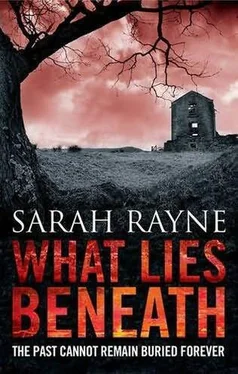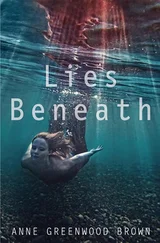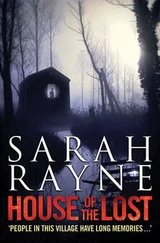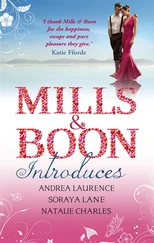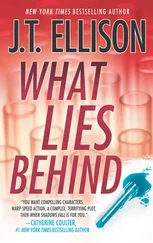Amy Haywood had been a surprise. Jan had intended the investigation into St Anselm’s and Priors Bramley to be a brief, more or less cursory inspection of the place, after which he would talk to the local choirmaster, if there was one, and maybe the local historian, if such a person existed and could be found. What he had not intended was that he should acquire an assistant in the shape of an enthusiastic archaeology student who had the most extraordinary looks he had ever encountered.
Amy would certainly not be everybody’s idea of conventional good looks, but she was someone you would look at a second time and then a third. Jan had the thought that if you regarded the current stage of human race as being the edited article, Amy Haywood might be considered the director’s cut. Or maybe the diamond hidden inside the rock, only visible to the really discerning eye. Hers was not a face men would be likely to sack cities for, or even want to take to bed – but it was a face men might want to take into their dreams.
Whatever she was, she was a one-off. Sui generis , thought Jan, smiling as he got into bed and turned out the light.
Jan half expected, the next morning, to regret his uncharacteristically hasty invitation, but as he drove to the library he found he was looking forward to Amy Haywood’s company.
He would not have been surprised to find she was not there, or that she had left some flimsy excuse, but she was waiting, wearing the jeans and scarlet shirt she had on last evening, with the jeans tucked into the tops of boots. She bounced out of the library and into the car, and although she was small and fine-boned she seemed to fill up the car with enthusiasm. She was not wearing anything as definite as sprayed-on perfume, but there was a faint, pleasing impression of clean hair and clean skin.
She had brought a large tote bag with notebooks and pens and a camera, which she said she was not sure how to work. ‘Oh, and I’ve brought the St Anselm’s photographs, as well. They’re quite old – somebody’s written “June 1930” on the back – so they’re a bit faded, but the detail’s quite good.’ She burrowed in the tote bag.
‘They’re clearer than I expected,’ said Jan, studying the photos.
‘Yes, and d’you see there and there on the front? Those strips of vertical stone – pilasters – are very Saxon. At least I think they are. I’ll have to look it up to be sure. They might be fake, of course. Victorian pastrycook.’
Priors Bramley, when they got to it, was more desolate than Jan had expected. As they left the car on a grass verge and walked towards the cluster of buildings, he experienced a wave of loneliness and a feeling of isolation so strong that he felt as if Priors Bramley’s past reached imploringly out to him. He did not believe in ghosts, but he did believe strong emotions could sometimes linger. God knew what agonies and fears had filled up this small pocket of land years ago. After all, this was a village whose residents had been forced to leave it before it was drenched in some lethal mix of poisons and then left to its own tainted remoteness.
A policeman on duty in the lane sketched a half-salute and seemed pleased at the small interruption to his day.
‘We wanted to take a look at the church,’ said Jan. ‘I was told that would be all right.’ He produced a small card, which he handed to the policeman, who glanced at it briefly, then stood up a bit straighter and said, ‘Quite all right, sir.’
‘Are the police still working at the manor?’ asked Amy.
‘Forensics are just finishing up. They’ve been searching the lodge, and the manor itself as well, of course.’
‘I suppose they’re trying to identify the body,’ said Amy.
‘Some hopes,’ said the policeman. ‘A tramp is most people’s guess. Oh, you’ll mind where you tread, won’t you?’ he added conscientiously. ‘Everywhere’s still sopping wet from the decontamination and it’s a bit muddy and slippery in places. I’m supposed to warn everyone about that.’
‘We’ll be careful,’ said Jan.
‘What on earth does your card say?’ demanded Amy as they walked away. ‘Because it certainly impressed the policeman.’
‘ “Doctor of Ancient Music Studies and Medieval Church History”,’ said Jan and Amy suddenly felt inadequate. Clearly he would be regarding her as one of his students. When he got back to Oxford and the nice wife he undoubtedly had, he would say casually to her, ‘I was latched onto by an eager young archaeology student while I was at Bramley. Durham, I think she’s at. If she’s ever in this area we’ll ask her for a meal.’
And the nice wife would nod and think, aha, another breathless young thing who fell in love with you, and say yes of course they would invite the Durham undergraduate to the house.
At this point Amy reminded herself that she had eschewed men for ever, and that from now on she was dedicating herself to her career and would most likely end up being a dessicated academic with no private life whatsoever and frumpy clothes.
At first it was not particularly disturbing to walk along the village street. The spraying was still drying out and there was a faint drip-drip of moisture from within some of the buildings. The ground was muddy, and despite the warm sunshine the air had a chill. Jan repressed a shiver.
Once Amy pointed to what looked like a faint glint of amber on the ground, like tiny specks of caramelized sugar. ‘And there’s a kind of sickly sulphurous taste in the air,’ she said. ‘Like bitterly cold metal, but with something very unwholesome just underneath.’
‘The Poisoned Village,’ said Jan, half to himself. Then, ‘But it’s more likely the chemicals from the decontamination that we can smell.’
‘It’s sad, though, whatever it is. It’s only fifty years since this village was lived in and there were ordinary people who had lives and friendships. And now it’s like a lost world.’
‘That shouldn’t worry you – you deal in lost worlds.’
‘But this is a world people still remember,’ she said. ‘My grandparents remember it – and Clem Poulter. Even the shop signs are still in place. You can read some of the lettering. That bow-fronted one was a bakery. It’s all spooky, isn’t it?’
‘Ghosts?’ said Jan lightly.
‘Well, not midnight groans and creaking coffins,’ said Amy. ‘And you needn’t laugh, because there are ghosts here, only I think they’re nice ordinary ghosts. All the people who used to shop, and scurry in and out of each other’s houses, and gossip about what Mrs Whatnot at number thirteen was up to with the milkman yesterday. Don’t look so quizzical, I do know it’s centuries since people got up to things with the milkman.’
‘And even longer than that since anyone cared,’ said Jan, irresistibly drawn into the world Amy’s word-pictures were painting, and preferring her cheerful homely ghosts to the lonely dispossessed shades he had sensed earlier.
‘They’d buy all kinds of things we’ve never even heard of from these shops,’ said Amy. ‘There wouldn’t be pizzas or sun-dried tomatoes or pasta, or vacuum packs of meat, would there?’
‘Indeed not. This one was a butcher’s shop, by the look of it,’ said Jan. ‘Scrag end of lamb, and brisket and brawn.’
‘It’s a lovely old place. I’ll get a shot of it, shall I? What was brawn, for pity’s sake? It sounds like a posh way of saying brown, or a make of hairdryer.’
‘Pressed meat made from a pig’s head.’
‘I knew it would be something utterly disgusting,’ said Amy gleefully.
‘Remember that next time you eat sushi or fried squid.’
The tainted smell, once they were further along the street, was not so noticeable, but the occasional amber glint still shone here and there, and the brooding silence pressed down on them. Clumps of vegetation, flattened and pallid, still clung to walls like boneless fingers, scrabbling for life.
Читать дальше
